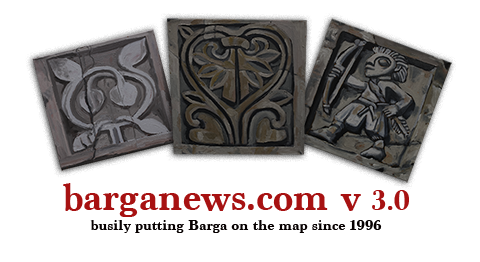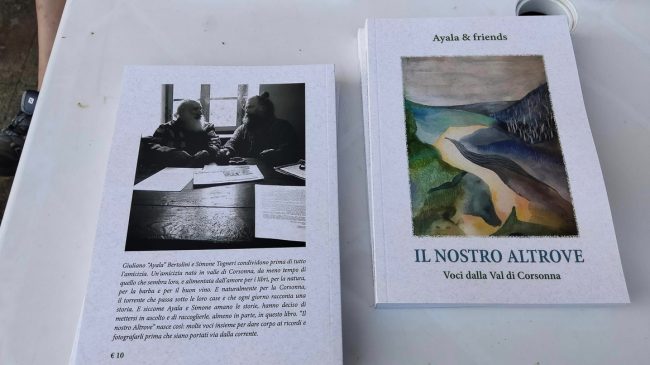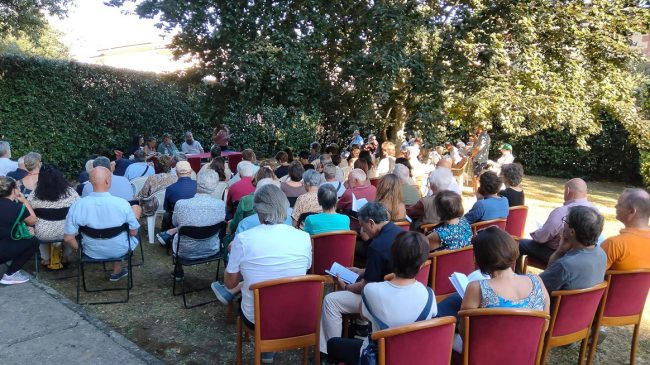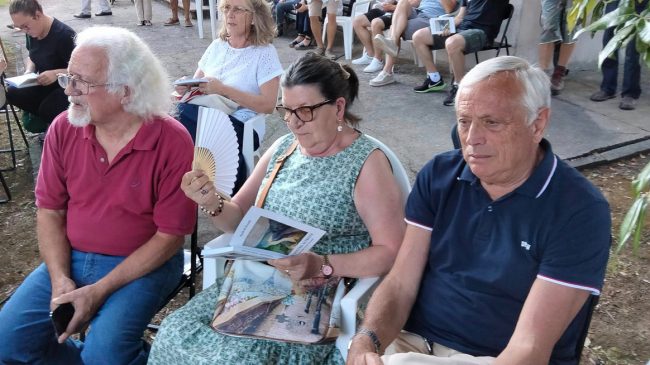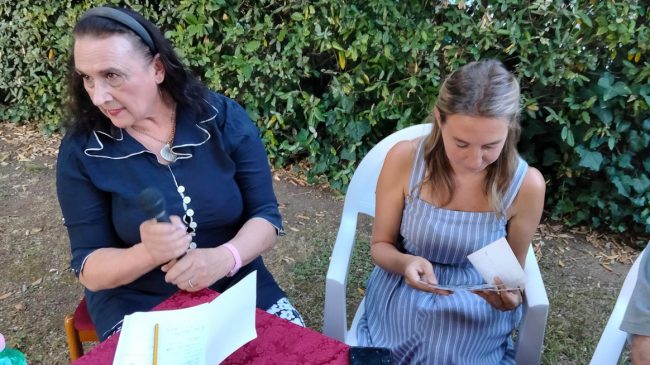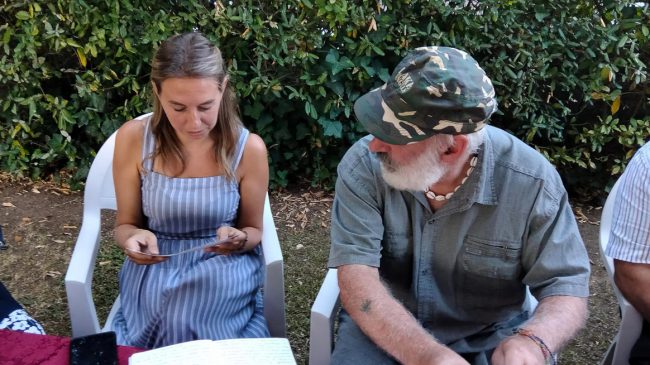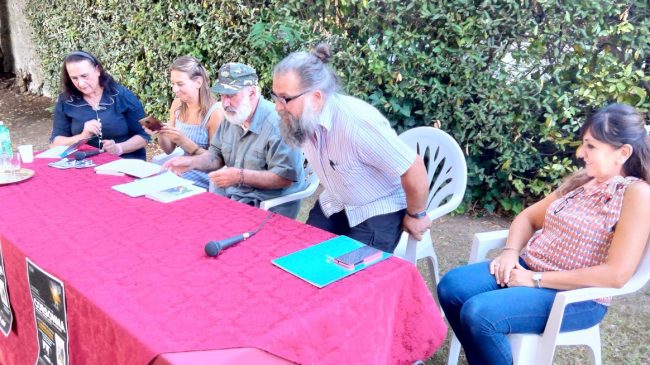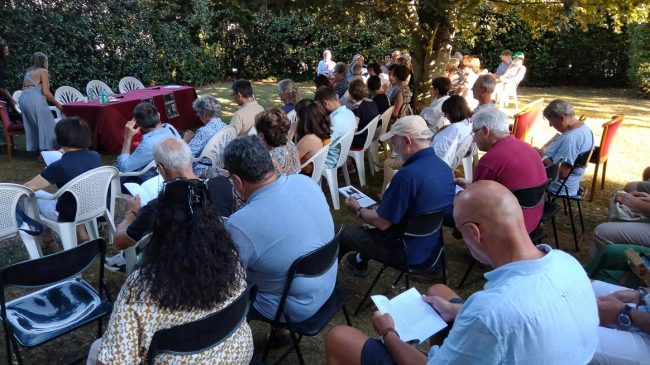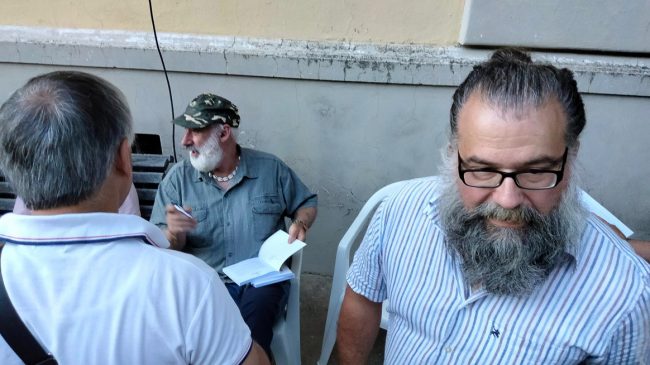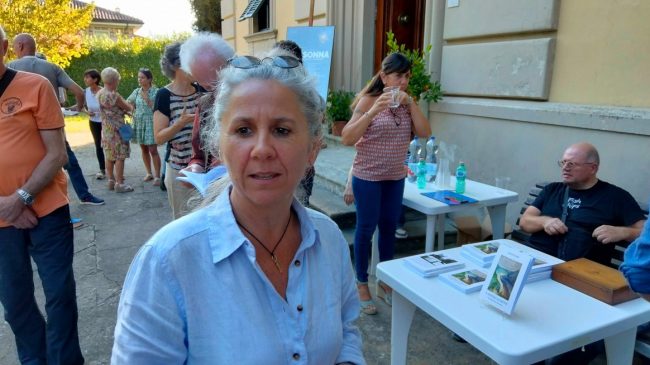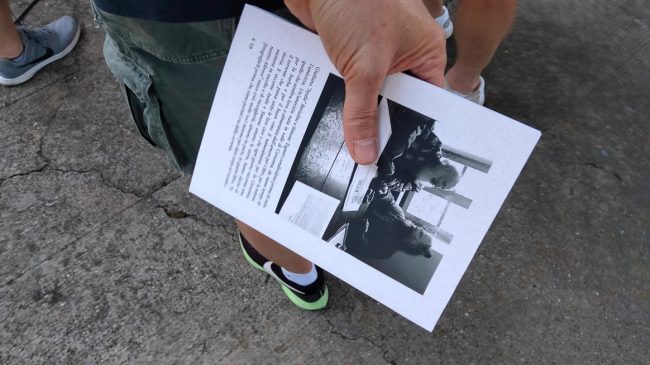Presentation of a new book, “Il nostro altrove. Voci dalla Val di Corsonna” by Ayala Bertolini and Simone Togneri at the Fondazione Ricci in Barga.
The event was part of the schedule of collateral events of the photographic and historiographical exhibition “Lungo la sponda del mio dolce fiume” organised by the Fondazione Ricci ETS in via Roma, 20, and by the Historical Institute of Lucca, Barga section.
The protagonists were the photographs by Caterina Salvi and the historical and cartographic information by Sara Moscardini, director of the Historical Institute of Lucca, Barga section, and Cristiana Ricci, president of the Fondazione Ricci.
“Our Elsewhere. Voices from the Corsonna Valley” was a book dedicated to the stream that crossed the territory of Barga and its inhabitants: the curators of the volume, Ayala Bertolini and Simone Togneri, gathered the voices and memories of those who lived in this valley. Stories balanced between reality and fantasy, memories, anecdotes that delivered the image of a “small ancient world” that didn’t succumb to nostalgia but lived its present with strong determination.
A book like this was needed, not only for those who have life stories tied to the Corsonna Valley: what happened in this area of Italy stands as a symbol of a transformation that, in a few decades, has reduced many Apennine valleys to places condemned to oblivion. The Corsonna Valley was a puzzle to reassemble: a mosaic that these last decades, so cynical in declaring the end of an era and equally ephemeral, sick with modernity and extreme speed, have disintegrated, leaving a void in a land – the Apennines – that have become marginalised, deliberately neglected by central public policies – Federico Pagliai
Introducing the volume, published by Cento Lumi, was Sara Moscardini, while the readings of some texts were entrusted to Valeria Belloni.
Emerging from these tales is how a community of people, despite living in houses and rustic dwellings scattered along this rugged valley, has developed a proud sense of belonging and fraternity. The story of the Corsonna Valley belongs to everyone.
Even today, as in the past, Corsonna exerts a special charm on those who approach it. When Corsonna calls, it’s impossible not to answer. Forming a bond with it becomes a sort of ailment, like those lovers who feel short of breath if they don’t see the desired person. Corsonna is also a therapy, with its rhythm, sometimes calm, sometimes tempestuous, with its cold and familiar waters. It’s a place deeply concrete and spiritual at the same time.”
A book like this was needed, not only for those who have life stories tied to the Corsonna Valley: what happened in this area of Italy stands as a symbol of a transformation that, in a few decades, has reduced many Apennine valleys to places condemned to oblivion.
The Corsonna Valley was a puzzle to reassemble: a mosaic that these last decades, so cynical in declaring the end of an era and equally ephemeral, sick with modernity and extreme speed, have disintegrated, leaving a void in a land – the Apennines – that have become marginalised, deliberately neglected by central public policies – Federico Pagliai
 |
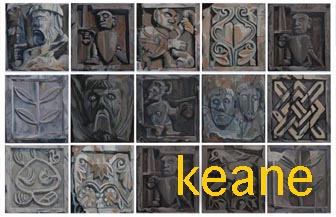 |
 |
 |
